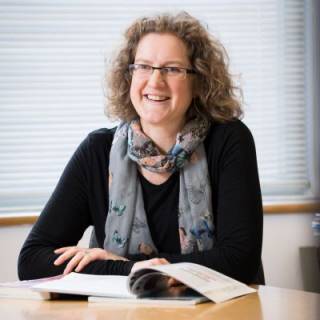Dr Jo Waller is exploring the varied reasons why women do not take part in the UK's cervical cancer screening programme - understanding that is informing the development of interventions to increase informed participation.
All UK women between the ages of 25 and 64 are invited to take part in a national cervical screening programme. The aim is to detect pre-cancerous cell changes before they have a chance to develop into cancer. Below the age of 50, women are invited for a screening test every three years, while those over the age of 50 receive an invitation every five years.
However, the response rate to invites is only around 70-75%, and is particularly low in older women and in women aged 25-29 - a significant issue as the incidence of cervical cancer peaks in the 30s. Through surveys and qualitative studies, Dr Waller and colleagues are aiming to tease apart the factors underlying non-participation.
A recent survey [1] identified three main groups of non-participants: those who were unaware of the screening programme (28% of respondents); those who had made an active decision not to participate (15%); and those who did want to participate but had not got round to making an appointment (51%). Those who had actively chosen not to participate had done so for a range of reasons, including a belief that they were not at risk of infection with sexually transmitted human papillomavirus (HPV, the main cause of cervical cancer) due to their sexual history or an aversion to the screening procedure.
Qualitative studies are planned to provide richer insight into these attitudes and behaviours. Previous studies have examined the perspectives of particular groups, such as people from ethnic minority communities, who typically show low take-up of services [2]. Important influences included more fatalistic attitudes to cancer and a lack of awareness that cervical cancer can be prevented. (Other studies have identified a widespread lack of appreciation of the preventability of cancer [3].)
The deeper understanding of the reasons for non-participation could underpin the development of a suite of interventions to enhance uptake of services. Dr Waller is hoping to pilot one approach based on text message reminders, inviting women to download an app and make an appointment straight away - based on the behavioural finding that people are more likely to turn an intention into an action if they can do so immediately.
Individualised tailoring of messaging would be challenging in a national screening context. Nevertheless, a deeper understanding of the demographic characteristics of the different groups of non-participants could enable general practices to tailor their communications according to the make-up of their local populations.
- Marlow LAV et al. Understanding the heterogeneity of cervical cancer screening non-participants: Data from a national sample of British women. Eur J Cancer. 2017;80:30-38.
- Marlow LA, Wardle J, Waller J. Understanding cervical screening non-attendance among ethnic minority women in England. Br J Cancer. 2015;113(5):833-9.
- Chorley AJ et al. Public understanding of the purpose of cancer screening: A population-based survey. J Med Screen. 2017:969141317699440.
 Close
Close


